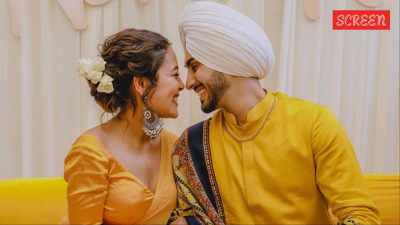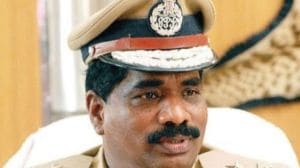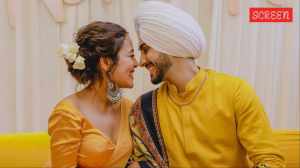Beating their drum
One winter afternoon, a group of jaunty collegiates looked around8212;at the wheeling bhelpuri walas, the bright soft drink carts and the people emerging from Palika Bazaar8217;s Gate No.

A band of Korean students from Delhi University is drumming up some attention
One winter afternoon, a group of jaunty collegiates looked around8212;at the wheeling bhelpuri walas, the bright soft drink carts and the people emerging from Palika Bazaar8217;s Gate No. 18212;before sitting down in a circle on a pavement in Connaught Place, overlooking the inner shopping colonnade. With their drums in front of them, they started to build up a cadence, going from steady to cheerful to ebullient, recreating the ancient folk-ritual sounds of Korea. A crowd had gathered8212;fascinated, curious, amused. But minutes into the rhythm, policemen made the band of young Samul Nori enthusiasts8212;samul means four instruments and nori means to play8212;disperse because they did not have 8220;permission8221; to play at a public place.
8220;We were supposed to play at the College of Vocational Studies, but the show got cancelled due to a strike. We had rented some of the instruments from the Korean Embassy, so we thought we might as well play somewhere before returning them,8221; shrugs Jung Dae Young, the frontman of the band of nine Korean percussionists8212;all Delhi University students8212;who call themselves Soeum, or noise. The 8216;noise8217; is actually a well-coordinated act of four Korean instruments8212;the Buk, the Janggu, the Jing and the Kkwenggwari. A first-year student of commerce at Satyawati College, Jung trained in the traditional art of Samul Nori for several years in Korea and is now teaching his bandmates in turn.
8220;We practise whenever we can all get together and find an open space. In the run-up to the Korean film festival we organised in November, where we performed, we used to practise every day,8221; says Yeonyee Kim, who plays the Janggu, a drum shaped like an hourglass that is associated with the sounds of rain. 8220;Together, the four instruments symbolise nature8217;s harmony, with their sounds representing four elements8212;rain, lightning, wind and thundercloud,8221; explains the second-year student of political science at Khalsa College, with a smile that lends her a flattering likeness to Chinese actress Ziyi Zhang.
The band, formed earlier this year, has only performed once8212;at the 8216;Korean Irresistible Film Festival8217;, held at the Shri Ram College of Commerce. 8220;We screened five movies over three days, including romantic comedies like The Art of Seduction and Someone Special, and thrillers like Big Swindle,8221; says Dahee Jeong, who plays the Buk, a wooden barrel drum that is identified with the thundercloud. Ask her about the response from Indian quarters and the Hindu College student exchanges a confused look with her bandmates.
Communication is a problem: flustered by simple questions, they talk among themselves in animated Korean before one of them comes up with a measured answer in English. They love Shah Rukh Khan, but can8217;t make head or tail of the Hindi plays at their college festivals. But they are not the only ones stranded on one side of the language barrier. There are about 5,000 Koreans in Delhi, Jung says, and 80-90 students of Korean origin at Delhi University8212;they even have a Korean students union. 8220;We came to India to learn English. We had heard that India is a rising country and a land of opportunity,8221; says Yeonyee, the most articulate of the lot. They may miss the Korean red bean soup and the Christmas cheer, but they are happy to be carrying the sounds of home with them.
- 01
- 02
- 03
- 04
- 05































